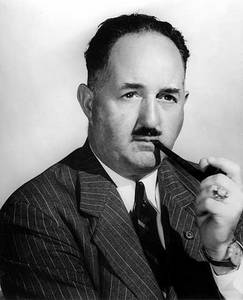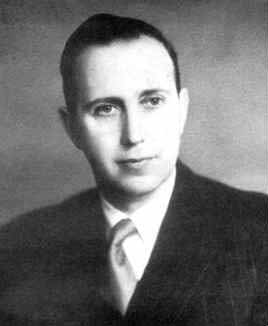<Back to Index>
- Physicist Howard Percy Robertson, 1903
- Physicist Arthur Geoffrey Walker, 1909
PAGE SPONSOR

Howard Percy Robertson (January 27, 1903 – August 26, 1961) was an American mathematician and physicist known for contributions related to physical cosmology and the uncertainty principle. He was a member of the National Academy of Sciences and the American Academy of Arts and Sciences.
Robertson was born in Hoquiam, Washington, and earned a bachelor’s degree in mathematics in 1922 and a master’s in mathematics and physics in 1923 from the University of Washington in Seattle. He completed his PhD at Caltech in mathematics and physics in 1925 under Harry Bateman, with the dissertation, “On Dynamical Space - Times Which Contain a Conformal Euclidean 3 - Space”.
Upon receipt of his doctorate, Robertson received a National Research Council Fellowship to study at the Georg - August University of Göttingen, the Ludwig Maximilians University of Munich, and Princeton University. At Munich, he was a postdoctoral student of Arnold Sommerfeld.
One of Robertson's first landmark papers, a brief note in The Annals of Mathematics, series II, Vol 39, pp. 101 – 104 (1938) entitled "Note on the preceding paper: The two body problem in general relativity" solved that problem within a degree of approximation not improved on for several decades. Earlier work, such as the Schwarzschild metric, were for a central body that did not move, while Robertson's solution considered two bodies orbiting each other. Nevertheless, his solution failed to include gravitational radiation, so the bodies orbit forever, rather than approaching each other.
Aside
from his work in physics, Robertson played a central role in American
scientific intelligence during and after World War II. During the war
years, Robertson was Chief American Liaison with British Scientific
Intelligence, when he became close friends with Dr. Reginald Victor Jones. Following the war, Robertson was a CIA classified employee and director of the Weapons System Evaluation Group in the Office of the Secretary of Defense.

Arthur Geoffrey Walker (17 July 1909 - 31 March 2001) was a leading mathematician who made important contributions to physics and physical cosmology. He was born in Watford, Hertfordshire, England.
Walker was an accomplished geometer, but he is best remembered today for two important contributions to general relativity. Together with H.P. Robertson, the well known Robertson - Walker metric for the Friedmann - Lemaître - Robertson - Walker cosmological models, which are exact solutions of the Einstein field equation. Together with Enrico Fermi, he introduced the notion of Fermi - Walker differentiation.
Walker attended Watford Grammar School for Boys and won a scholarship to Balliol College, Oxford, where he graduated with first class honours. He then studied at Merton College, Oxford, and completed his doctorate at the University of Edinburgh.